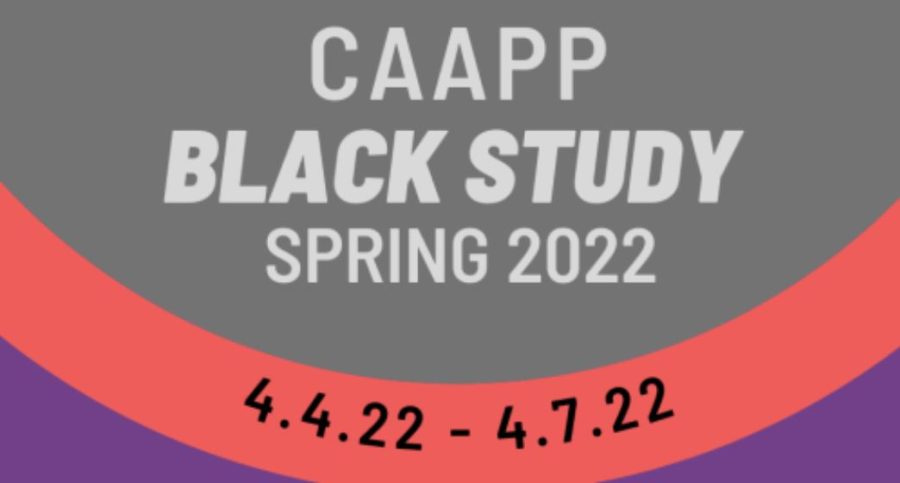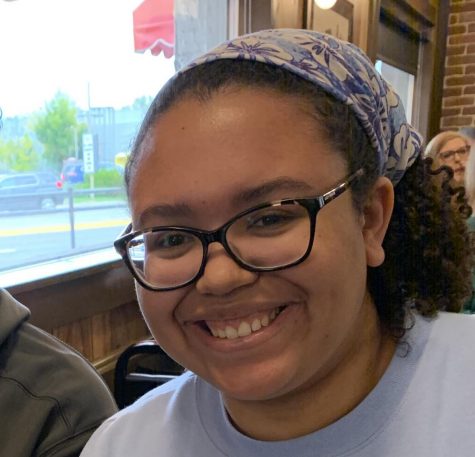‘Something for everyone’: CAAPP prepares for next Black Study series
January 23, 2022
The Center for African American Poetry and Poetics will soon bring together a variety of writers, artists and musicians to be in conversation with one another for its “Black Study on Intimacy, Part Two” in April.
This is CAAPP’s fourth such series of programming under the “Black Study” heading and it continues the focus on intimacy from last semester’s program. The series will be held with a mix of in-person and visual events between April 4 and 7, with virtual events streaming on CAAPP’s Crowdcast page like previous years.
Steffan Triplett, the interim assistant director of CAAPP, said the organizers tried to pick a theme for this year’s series that was relevant to the time.
“In the past, we’ve done Black studies that were weeklong intensives or spread out across the semester. [This year] we decided to do just one week of programming,” Triplett said. “We think about themes that would be useful, that’s why this year we plan on this theme of intimacy as we navigate, what does it mean to be intimate in a moment where we often can’t interact in the same room with each other.”
Not only did they want to create something students would be interested in, but Triplett said CAAPP also wanted to create something people unaffiliated with the University could engage with.
“We try to directly respond to the moment and our feelings in the moment,” Triplett said. “We’ll talk about what we think would be good programming for not just the universities, but for the Pittsburgh public, as well, what is something that would be useful for students, instructors and people of the Pittsburgh community.”
The event will not only feature writers, but also illustrators and musicians. Triplett said CAAPP wanted to have a broad appeal this year.
“With this particular series, I think there is something for everyone,” Triplett said. “We’re bringing in a lot of poets, but there’s also nonfiction writers and fiction writers, right? We have cartoonists and a graphic novelist, this time around musicians. It’s just a really great mix of different disciplines.”
The first panel will be “Black Sound as Liberation Technology.” K. Henderson, a poetry MFA and CAAPP graduate student assistant, curated this panel. It will feature Anaïs Duplan, Camae Ayewa — also known as the musician Moor Mother — and Taylor Johnson in conversation about their work.
Henderson said they hope the panel will be more casual and intimate than a traditional panel.
“We’ll be bringing together three really brilliant artists who I feel engage in, like, Black avant garde work, through sound, among other things,” Henderson said. “I’m thinking less panel and more like, sitting at the kitchen table, chatting it up, reacting to each other’s work.”
All three panelists create work that speaks to the Black experience, according to Henderson, and examine both the community’s past and future.
“Anaïs and Camae, have a specific, explicit interest in Afrofuturism where each of their work, questioning towards a future, what Blackness is in the present and what it can be,” Henderson said. “Taylor’s work is really informed by the sound of go-go, and the culture of go-go in DC, and I’m looking forward to hearing more about what their relationship to go-go is, and the relationship between poetry and music for them.”
Yona Harvey, an associate English professor, will be curating the second event, “Drawing from Home.” The event will feature Ebony Flowers, Rina Ayuyang and Marcel Walker, who will also serve as a moderator. All three are involved in illustration in some form and will talk about their artistic work.
Besides this panel, Flowers will host a comic-making workshop and there will be a companion hands-on workshop by the Center for Creativity.
Assistant professor Diana Khoi Nguyen will curate the final panel, titled “Artifacts of Time Travel.” It will feature Tongo Eisen Martin, Kao Kalia Yang and Victoria Chang. Martin and Chang are both poets, while Yang is a nonfiction writer. Chang will also serve as a participant-moderator.
The panel is focused on three writers whose work is heavily influenced by their personal and family histories, and will speak about already published work and current works in progress. Unlike the previous two panels, this event is planned to be in person, COVID-19 restrictions permitting.
Nguyen said she chose these three participants for the similar themes in their work and how their discussion can represent an intersection between the African American experience and other communities.
“All of them move through time, the present moment and also the past moments, in past decades and past generations,” Nguyen said. “CAAPP is also interested in how African American poetics intersects with other diasporas and communities.”
Nguyen said attendees should come with open eyes, and not be intimidated if they’re unfamiliar with the creators featured.
“I always hope that people arrive at these events, ready to receive,” Nguyen said. “I think it’s also kind of best when you don’t even know too much about people who are going to be there. Because you kind of just then get swept up in what’s about to happen.”




